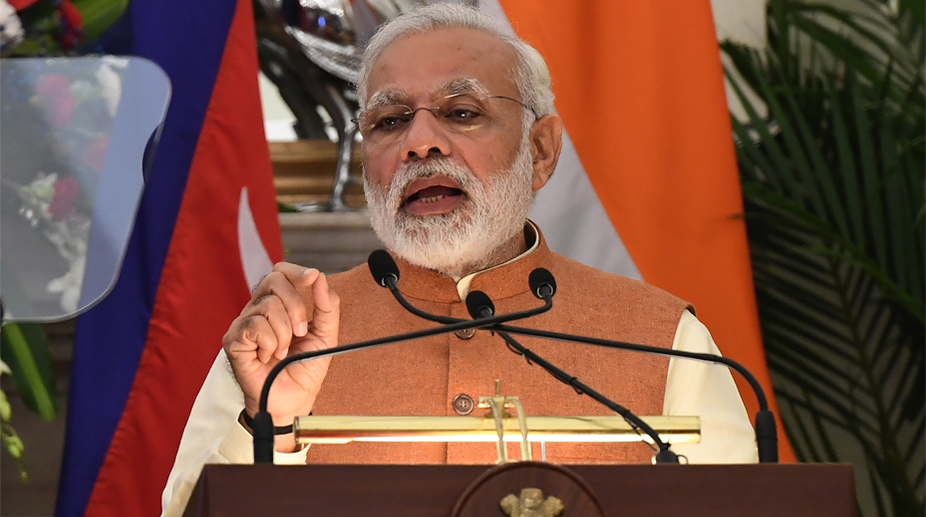Prime Minister Narendra Modi on Friday said the food sector that allows 100 per cent foreign investment was the priority in the government’s ambitious “Make In India” programme.
Launching a three-day global conference on the food industry here, Modi said food processing was an age-old practice in India and simple, home-based techniques like fermentation had resulted in the creation of “our famous pickles, papads, chutneys and murabbas that now excite both the elite and the masses across the world”.
Advertisement
He said the government had taken a range of “transformational initiatives to make the country “most preferred investment destination in this sector”.
“It is priority sector in our ‘Make in India’ programme. 100 per cent Foreign Direct Investment is now permitted for trading including through e-commerce of food products manufactured or produced in India,” Modi told the World Food India conference that will see the participation of over 2,000 delegates from 200 companies from some 30 countries.
Apart from representatives of 28 states, it will also see the participation of 18 ministerial and business delegations, nearly 50 global CEOs along with heads of all leading domestic food processing companies.
Modi said a single-window facilitation cell provided hand-holding for foreign investors and there were attractive fiscal incentives from the Union and state governments.
“Loans to food and agro-based processing units and cold chains are classified under priority sector lending, making them easier and cheaper to obtain,” the Prime Minister said.
Modi said the recently launched unique portal – Nivesh Bandhu (investor’s friend) – would bring together information on central and state government policies and incentives provided for the food processing sector.
He said private sector participation had increased in many segments of the value chain but sought more investment in contract farming, raw material sourcing and creating agri linkages.
There were opportunities in post-harvest management such as primary processing and storage, preservation infrastructure, cold chain and refrigerated transportation, the Prime Minister asserted.
“There is immense potential for food processing and value addition, especially in niche areas such as organic and fortified foods.”
Modi said India with its rich legacy of spices could provide solutions and offer a win-win partnership as the world was becoming increasingly averse to the use of artificial colours, chemicals and preservatives.
Modi said the Pradhan Mantri Kisan Sampada Yojana aimed at creating world class food processing infrastructure was expected to leverage “investment of $5 billion, benefit two million farmers and generate more than half a million jobs over the next three years”.
He said the government was planning to link agro-processing clusters with production centres through Mega Food Parks, which “will offer immense value proposition in crops such as potato, pineapple, oranges and apples”.
Minister of Food Processing Industries Harsimrat Kaur Badal in her address said agreements worth $10 billion were expected to be signed during the three-day global event.
“Our demand of food is set to double over the next five years. Being six largest food and grocery market in the world, India is a destination that merits global attention in the food sector.”
She said there was a need to wage war on food waste “to ensure adequate food for all” and to avoid a food crisis as the world’s population was set to increase by 25 per cent and the demand for food by 50 per cent by 2050.











